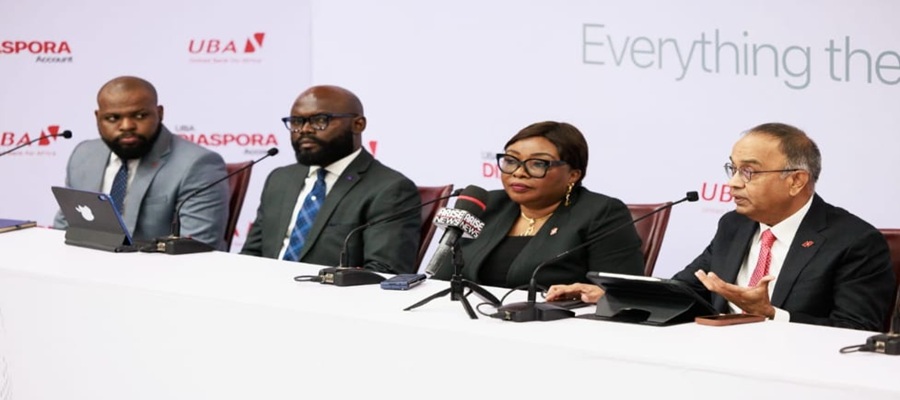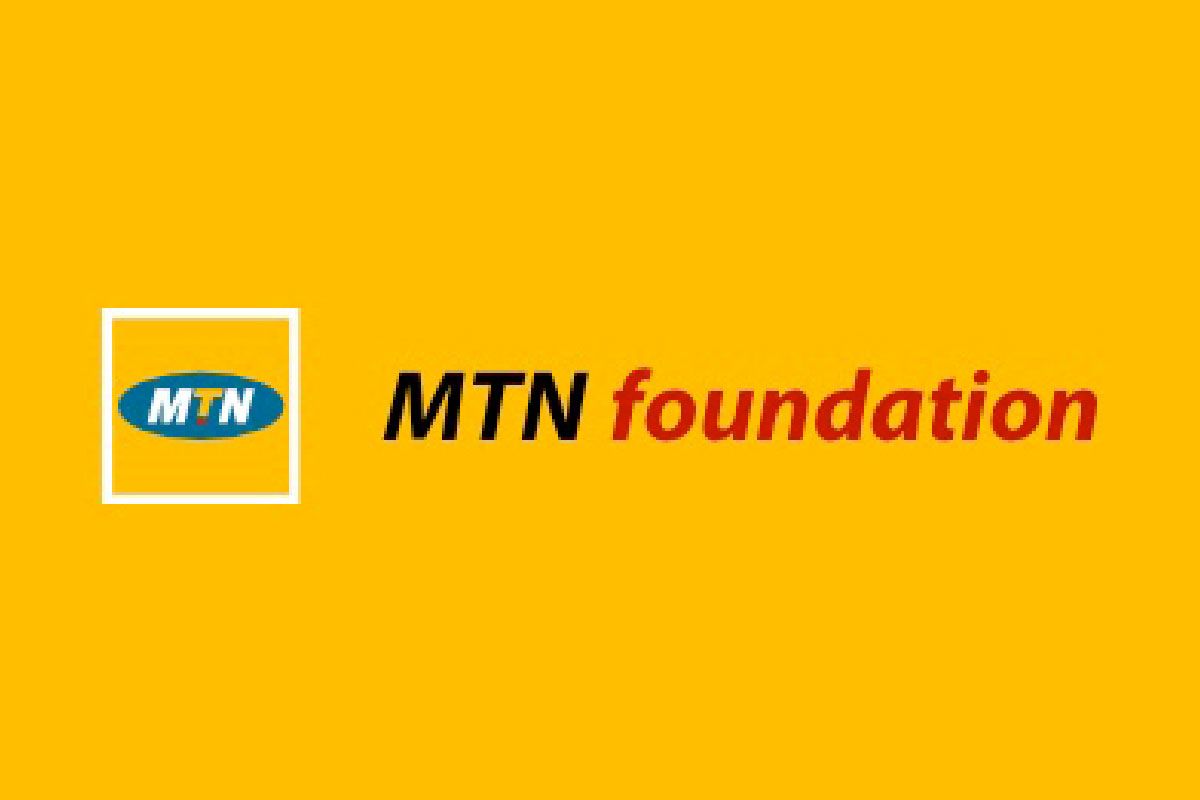General News
Nigerian Fintech Solution Improving Access to Bill Payment in Rural Communities

In Nigeria, the creative application of technology to the provision of financial services is having a positive effect on both business operations and individual experiences. Fintech solutions are promoting financial inclusion by providing more affordable, easy, and convenient ways to make bill payment and engage in financial services and decisions.

Nigeria has one of the most vibrant fintech ecosystems in Africa. However, a 2020 report by EFInA revealed that up to 38 million Nigerian adults, translating to about 36% of the total adult population in the country, were financially excluded. Regardless of the number of commercial banks and microfinance banks available, a good percentage of the Nigerian adult population remains under-banked – a bulk of this unbanked population comprising rural dwellers, farmers and petty traders.
Awolowo David, a trader in Ikorodu, Lagos, fits perfectly into this description. But since he started using MoMo Bill Payment, his bill payments have been simplified. “I like convenience. Because for me, it’s about doing something at my own pace and when it’s comfortable. No one wants to run around just because they want to pay for utilities like electricity bills. With MoMo, I can accomplish this right now on my phone. MoMo Bill Payment is one financial solution that makes things convenient.
‘’Since my neighbour first introduced me to MoMo Bill Payment, it has become my go-to resource for all things related to bills. I must say I was a little hesitant due to the nature of technology in general, but now that I’ve used MoMo, I have no regrets. I primarily utilise MoMo bill payment to renew my GOTV, pay my electricity bills, and other bill payment services that are available on the platform,” he added.
MoMo Bill Payment is one of the convenient services offered by MoMo PSB, a mobile banking platform that offers financial solutions to merchants, fintech companies, banks, financial institutions, digital service providers and other organisations. It offers an easy, safe and inexpensive way to purchase prepaid electricity units, renew cable TV, betting, and loan collection bills to specific vendors. Additionally, you can use MoMo Pay to pay merchants and business owners.
The goal of MoMo Bill Payment is to improve financial inclusion by providing an easy way for people to move money, access financial information and make bill payments. It also supports the CBN’s efforts to promote financial inclusion by ensuring penetration among the underserved and unbanked in northern Nigeria and across the country.
General News
UBA Unveils Diaspora Platform to Connect Global Africans with Investment, Wealth Opportunities

United Bank for Africa (UBA) Plc, Africa’s Global Bank, has unveiled a diaspora banking and investment platform designed to serve Africans living and working across the world and within the continent.

L-R: Head, Strategy, Research & Investor Relations, Africa Prudential, Joshua Omewah; Group Head, Sales, Retention and Growth, AVON, Ajibola Bakare; Managing Director, UBA Pension, Blessing Ogwu and Head, Diaspora Banking, Anant Rao, during UBA’s Panel session, themed: ’Beyond Banking: Powering the Diaspora Lifestyle,’ held at UBA House Marina, in Lagos on Thursday.
The platform, launched in collaboration with leading ecosystem partners including United Capital, Africa Prudential, UBA Pensions, Afriland Properties, Heirs Insurance Group, and Avon Healthcare Limited — represents a major step in redefining diaspora banking beyond remittances toward structured wealth creation and long-term investment.
At the unveiling, which took place at UBA’s global headquarters in Lagos under the theme: “Beyond Banking: Powering the Global African Lifestyle, all the company representatives were on hand to showcase a seamless platform that goes beyond remittances, wealth creation, protection, and long-term prosperity.
Speaking at the event, UBA’s Head of Diaspora Banking, Anant Rao, described the initiative as a strategic shift in how Africa engages its global citizens.
“For decades, Africa’s engagement with its diaspora has focused largely on remittances. Today, we are moving beyond that. This platform represents a transition from simple money transfers to a financial ecosystem where Africans globally can bank, make payments, invest, protect their families, and build long-term wealth seamlessly,” he said.
Rao noted that African diaspora remittance flows exceed $100 billion annually, making them one of the most resilient and consistent sources of capital into the continent.
“Diaspora capital is not just a flow of funds — it is a strategic growth partner for Africa.
Our role is to provide a trusted platform that converts capital into structured investment and shared prosperity across the continent.”
The objective is to provide a platform that brings together offerings across the numerous needs of the Global African, including Banking and payments, Investments, securities services, asset management, Insurance, Pensions, real estate and Pensions.
Through this coordinated ecosystem, diaspora customers can access financial solutions across multiple sectors through a single trusted platform, enabling them to manage their financial lives and family commitments across borders with ease and transparency.
UBA’s Group Head, Marketing and Corporate Communications, Alero Ladipo, emphasised the importance of collaboration in delivering a seamless diaspora experience.
“The modern African is a global citizen — mobile, ambitious, and deeply connected to home. Whether living in Africa, Europe, the Americas, or the Middle East, there must be a structured and secure financial connection back home. This platform ensures that Africans everywhere can remain economically connected to the continent with confidence and transparency.”
Partners within the ecosystem highlighted growing demand among diaspora Africans for structured investment opportunities, secure property ownership, insurance protection, and long-term financial planning.
United Capital showcased globally accessible investment products designed to deliver professionally managed and transparent wealth creation opportunities.
Afriland Properties emphasised structured and well-governed real estate investment pathways for diaspora clients.
Heirs Insurance highlighted protection solutions for life, and assets, while Avon Healthcare Limited demonstrated healthcare access and insurance solutions for families across borders.
Africa Prudential and UBA Pension reinforced digital investment management and long-term pension savings solutions designed to support diaspora participation in African capital markets.
Together, the partners underscored a shared commitment to providing diaspora Africans with credible, transparent, and professionally managed financial pathways.
Rao also reiterated the guiding philosophy of Africapitalism, championed by UBA’s Founder and Chairman, Mr. Tony O. Elumelu, CFR.
He explained that Africapitalism is the belief that Africa’s private sector must play a leading role in the continent’s development by making long-term investments that generate both economic returns and social impact.
As Africa continues to position itself as one of the world’s most dynamic growth frontiers, UBA believes mobilising diaspora capital through trusted financial institutions will be central to shaping the continent’s next phase of development.
“Africa will increasingly be financed by Africans themselves, including Africans abroad,” Rao added.
“Our responsibility is to build the trusted financial infrastructure that makes this possible.”
“When Africa’s global citizens invest back into Africa, growth becomes inevitable,” he concluded.
General News
BOI, MTN Foundation Unveil N1Bn Fund for Women Entrepreneurs

Bank of Industry (BoI) and the MTN Foundation have signed a memorandum of understanding to establish a N1bn Matching Fund to expand access to finance and capacity building for women-led micro enterprises across the country.

The institutions said the fund, under the Y’ellopreneur 3.0 programme, would operate as a pilot to reach women running viable businesses who remain excluded from formal credit due to collateral and documentation requirements.
Speaking at the signing ceremony held recently in Lagos, Dr Olasupo Olusi, managing director and chief executive officer of BOI, said the initiative goes beyond the continuation of an existing collaboration and targets women at the base of the economic pyramid.
Olusi said the intervention focuses on women who operate viable businesses but remain excluded from structured finance.
He said, “Across Nigeria, women sustain a large share of micro-businesses in the markets and communities, while processing and providing services that support household income and local economic activity.”
Olusi added that despite their contributions, many women cannot access affordable capital because traditional lending models demand documentation, collateral, and financial histories that do not reflect how their businesses operate.
The BoI CEO noted that the partnership aims to bridge that financing gap through a model tailored to women entrepreneurs who need funding the most.
He said, “This partnership is designed to specifically bridge that gap. The programme is structured as a pilot to test, learn and refine the model that works for women entrepreneurs who need financing the most, while building a framework that can be sustainably expanded over time.”
Olusi explained that beyond credit provision, the programme embeds capacity building, business development support, and mentorship. He disclosed that the partners plan to train about 1,000 women entrepreneurs in record-keeping, growth management, and competitiveness.
He stressed that an expanding opportunity at the microenterprise level strengthens productivity, stabilises income, and contributes to broader economic resilience.
“BOI remains committed to working closely with MTN Foundation and all stakeholders to ensure the effective implementation of this programme,” he explained. “Our focus will be on transparency, on sustainability and measuring outcomes so the programme delivers real value and provides a model that can be replicated under other programmes.”
On her part, Odunayo Sanya, executive director of MTN Foundation, said the renewed partnership builds on earlier pilot phases that helped both institutions refine their approach and scale impact in women-led businesses.
Sanya said the new phase seeks to deliver faster and more measurable outcomes for women-owned enterprises. She explained that the foundation aims to build capacity for 30,000 female-led businesses by 2030, up from nearly 6,000 reached so far, while unlocking access to capital for 10,000 women-owned enterprises through the renewed partnership with BOI.
Sanya stated, “This partnership will deepen support for women entrepreneurs, improve business survival rates, and attract additional partners to scale funding for the segment.”
She added that the initiative would combine training, mentorship, and financing and serve as a blueprint for broader public–private cooperation in unlocking new pools of capital for enterprise development and inclusive growth in Nigeria.
General News
Jumia Targets Break-even in 2026 After Strong Q4 Surge

Pan-African e-commerce giant Jumia says it has moved decisively beyond survival mode after posting robust fourth-quarter 2025 earnings, with CEO Francis Dufay declaring the company is now entering a phase of high growth after years of restructuring.

The firm, founded in Lagos, Nigeria, in 2012, reported a sharp acceleration in core marketplace activity, reinforcing what management describes as a successful turnaround built on tighter execution, cost discipline and smarter geographic focus.
Gross Merchandise Value (GMV) jumped 36% year-on-year to $279.5 million in Q4, while adjusted EBITDA losses nearly halved to $7.3 million. Revenue rose 34% to $61.4 million, and cash burn narrowed significantly, a signal that Jumia’s operating engine is strengthening.
“The growth rate of the company has been accelerating. We are really scaling. Demand has always been there in our markets. What’s changing is our execution,” Dufay said.
Nigeria led the charge with 50% GMV growth, while Ghana recorded triple-digit expansion in physical goods. Egypt stabilised after currency and corporate sales headwinds, reinforcing what Dufay called a “confirmation” of recovery.
Often dubbed the “Amazon of Africa,” Jumia operates a marketplace platform, a logistics network, and a digital payments arm across key African economies. After years of heavy losses, the company streamlined operations, exiting South Africa, Tunisia and now Algeria, while cutting non-core services, reducing headcount and deploying AI tools to improve efficiency.
Competition from Chinese fast-commerce players Temu and Shein has further intensified pricing pressure. Yet, Dufay argues that the Africa-focused e-commerce retailer’s logistics footprint, payment-on-delivery model and expanded sourcing operations in China have helped level the playing field.
“People thought they would eat our lunch. But we can fight against those platforms in our markets,” he said.
The Jumia CEO stressed that operational upgrades, including rural pickup networks and Buy Now, Pay Later partnerships, are driving customer retention and higher order volumes. First-party international partnerships have also boosted the revenue mix.
Looking ahead, Jumia expects GMV growth of up to 32% in 2026 and targets adjusted EBITDA breakeven by the fourth quarter.
“This business has changed. It’s clear in the numbers that profitability is within reach, and now the focus is scaling what works,” stated Dufay.
He believes Jumia’s pivot is a sign of a maturing African e-commerce sector where disciplined growth, localisation and logistics excellence may define the next competitive frontier.

 E-Financial3 days ago
E-Financial3 days agoNAICOM Targets Resilient, Global Competition Market in Insurance Sector Consolidation

 News3 days ago
News3 days agoNITDA Explores Partnership with Trust Stamp on Digital Trust and Innovation

 Telecom3 days ago
Telecom3 days agoNCC Orders Telcos Inform Subscribers of Data Breach within 48 Hours

 E-Financial3 days ago
E-Financial3 days agoIGP Designates Banks National Security Asset, Orders Crackdown on Cyber Frauds

 General News3 days ago
General News3 days agoCybersecurity Firm Warns Against Gift Card Scams @ Saint Valentine’s Day

 E-Financial3 days ago
E-Financial3 days agoRashidat Adebisi Unveils Strategic Roadmap for Nigeria’s Insurance Sector under NIIRA 2025

 Telecom3 days ago
Telecom3 days agoGlobacom Promotes Valentine Gifting with Huge Discounts on Smartphones

 Telecom3 days ago
Telecom3 days agoMTN Backs Bosun Tijani’s Vision for Africa’s AI Leadership


























